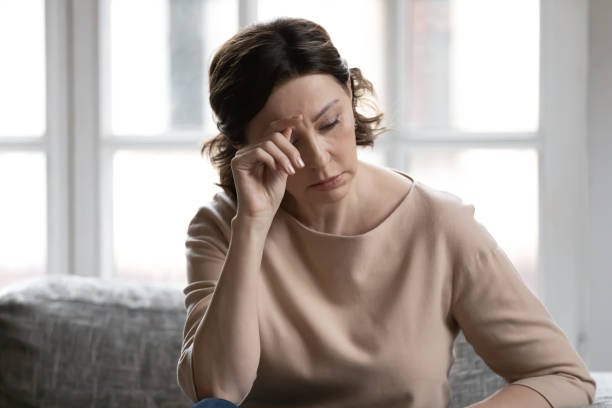Hormonal imbalance in females is a common issue that many women face at some point in their lives. It can affect a woman’s physical health, emotional well-being, and overall quality of life. From irregular periods to unexplained weight gain and mood swings, it can feel overwhelming. So, what exactly causes these imbalances, and more importantly, how can you cure hormonal imbalances in females?
In this article, we’ll explore what a hormonal imbalance is, its common causes, symptoms, and most importantly, how to naturally and effectively restore balance in your hormones. If you’re struggling with hormonal imbalances, the solutions shared here will help you feel better, naturally.
What Causes Hormonal Imbalance in Females?
Before we dive into how to cure hormonal imbalance, it’s essential to understand what hormonal imbalance is and what causes it. Hormones are chemical messengers that control numerous bodily functions. Hormones are essential for regulating various bodily functions, including metabolism, mood, reproduction, and growth. An imbalance can disrupt these functions, leading to a wide array of symptoms. Hormonal imbalances occur when there is too much or too little of a hormone in the bloodstream.

Several factors can contribute to hormonal imbalance in women:
- Age-Related Changes: As women approach perimenopause and menopause, their hormone levels naturally begin to fluctuate. The production of estrogen and progesterone declines, leading to symptoms like hot flashes, night sweats, and irregular periods.
- Polycystic Ovary Syndrome (PCOS): PCOS is a common hormonal disorder that affects the ovaries and causes hormonal imbalances.. It can cause an imbalance in estrogen, progesterone, and testosterone, leading to symptoms like weight gain, irregular periods, and acne.
- Chronic Stress: Stress triggers the production of cortisol, a hormone that can disrupt the balance of other hormones like estrogen and progesterone. High cortisol levels can lead to issues like weight gain, mood swings, and fatigue.
- Thyroid disorders: Hypothyroidism or hyperthyroidism can disrupt metabolism and cause weight gain or loss.
- Diet and Lifestyle Factors: Poor diet, lack of exercise, and insufficient sleep can all contribute to hormonal imbalances. An unhealthy lifestyle can affect the production of insulin, estrogen, and other important hormones.
Signs and Symptoms of Hormonal Imbalance in Females
Now that we know the causes, let’s explore the common signs and symptoms that may indicate a hormonal imbalance. Recognizing these symptoms early can help you take action sooner:
- Irregular Periods: One of the most obvious signs of hormonal imbalance in women is irregular periods. This can manifest as skipped periods, very heavy or very light periods, or changes in the length of your cycle.
- Unexplained Weight Gain or Difficulty Losing Weight: Hormones like insulin, thyroid hormones, and cortisol can all affect your metabolism. Imbalances in these hormones may lead to unwanted weight gain, especially around the abdomen.
- Mood Swings and Anxiety: Estrogen and progesterone are deeply linked to mood regulation. Imbalances can cause irritability, anxiety, depression, or unexplained emotional changes.
- Fatigue and Low Energy: Low levels of thyroid hormones or high levels of cortisol can leave you feeling exhausted, no matter how much rest you get.
- Sleep Problems: Hormones regulate your sleep cycle. Imbalances in progesterone or cortisol can lead to insomnia or disrupted sleep patterns.
- Acne and Skin Changes: Hormonal fluctuations, particularly an increase in testosterone or estrogen, can cause acne, especially around the jawline and chin.
How to Cure Hormonal Imbalance in Females: Natural Solutions
So, how can you cure hormonal imbalance in females and restore balance to your body? Let’s look at some natural and effective solutions that focus on healing from within.
1. Adopt a Hormone-Balancing Diet
One of the most effective ways to support hormonal balance is through your diet. The food you eat can either help or hinder your hormone health. Here are some dietary strategies that can help restore balance:
-
- Eat Healthy Fats: Hormones are made from fats, so it’s crucial to include sources of healthy fats in your diet. Avocados, olive oil, nuts, and fatty fish like salmon are great options.
- Increase Fiber Intake: Fiber helps regulate blood sugar and remove excess hormones from the body. Include plenty of vegetables, fruits, and whole grains in your meals.
- Consume Lean Proteins: Protein supports the production of hormones and helps maintain muscle mass. Opt for lean proteins like chicken, turkey, tofu, and legumes.
- Limit Sugar and Processed Foods: High sugar intake can lead to insulin resistance, which disrupts hormone balance. Avoid sugary snacks, processed foods, and refined carbohydrates.
- Stay Hydrated: Proper hydration supports every function in the body, including hormone production.

2. Exercise Regularly
Exercise is a powerful tool for restoring hormonal balance. Physical activity helps reduce stress levels, balance insulin, and improve circulation, all of which are essential for healthy hormones.
- Strength Training: Building muscle through strength training can increase your metabolism and help regulate insulin and cortisol levels.
- Yoga and Meditation: Yoga and mindfulness exercises help reduce stress, which can prevent cortisol-induced hormone imbalances. These activities also promote better sleep and improve mood.
3. Manage Stress Effectively
Stress is one of the biggest contributors to hormonal imbalance. When you’re stressed, your body produces cortisol, a hormone that helps manage stress. However, chronic stress leads to prolonged high levels of cortisol, which can interfere with the balance of other hormones like estrogen and progesterone.
Here’s how you can manage stress:
- Practice mindfulness and meditation: Mindfulness techniques, like deep breathing and meditation, can help reduce cortisol levels and promote relaxation.
- Exercise regularly: Physical activity, especially yoga and walking, can help lower stress levels and balance hormones.
- Get enough sleep: Sleep is crucial for hormone production, including the regulation of cortisol. Aim for 7-9 hours of quality sleep per night.
4. Prioritize Sleep
Sleep is essential for hormone production and regulation. Poor sleep can interfere with the production of important hormones like melatonin, cortisol, and growth hormone.
- Sleep Hygiene: Set a regular sleep schedule, avoid caffeine in the afternoon, and limit screen time before bed to improve your sleep quality.
- Create a Relaxing Bedtime Routine: Activities like reading, taking a warm bath, or listening to soothing music before bed can help you unwind and promote better sleep.
5. Consider Natural Supplements and Herbs
Several natural supplements can help restore hormonal balance. Some of the most popular options includes:
- Vitex (Chaste Tree Berry): This herb has been shown to help regulate menstrual cycles and support progesterone production.
- Maca Root: Known for its ability to balance estrogen and support energy levels, maca root is a popular choice for women experiencing hormonal fluctuations.
- Magnesium: This mineral supports the adrenal glands and can help reduce stress and improve sleep, which is essential for hormonal balance.
- Ashwagandha: A powerful adaptogen that helps balance cortisol levels and manage stress naturally.
- Omega-3 Fatty Acids: Reduces inflammation and supports the production of key hormones.
Before adding any supplements to your routine, it’s essential to consult with a healthcare provider to ensure they are right for you.
6. Hormone Replacement Therapy (HRT) and Medical Interventions
For some women, lifestyle changes alone may not be enough to restore hormonal balance. In these cases, medical interventions like hormone replacement therapy (HRT) can be an effective option. HRT involves supplementing hormones like estrogen and progesterone to restore balance.

However, it’s essential to consult with a healthcare provider before considering HRT. They can guide you through the risks and benefits of HRT based on your individual needs.
Conclusion: Taking Control of Your Hormonal Health
Restoring hormonal balance takes time, but with consistent lifestyle changes and the right support, you can begin to feel better within a few weeks. Simple steps like improving your diet, managing stress, staying active, and using supportive supplements can make a big difference in how your body feels and functions.
If you’re ready to regain control of your health and address hormonal imbalance, our team at Kairos Health & Wellness is here to support you. Lola, our Board-Certified Nurse Practitioner, offers personalized care rooted in functional medicine and clean wellness. From persistent fatigue and mood swings to weight changes and irregular cycles, she helps clients uncover the root causes and find lasting relief. Contact us today to learn more or book your consultation.
Frequently Asked Questions (FAQs)
Q1. What are the symptoms of hormonal imbalance in females?
Hormonal imbalance symptoms include irregular periods, weight gain, mood swings, fatigue, acne, and difficulty sleeping. If you notice any of these symptoms, it’s essential to consult a healthcare provider to determine the cause.
Q2. Can diet alone help balance hormones?
Yes, a nutrient-rich, balanced diet can significantly support hormone regulation. Focus on healthy fats, lean proteins, and plenty of fiber while avoiding sugar and processed foods.
Q3. Should I take supplements to balance my hormones?
Supplements like maca root, Vitex, and magnesium can support hormonal balance, but it’s essential to consult with a healthcare provider before adding any new supplement to your routine.
Q4. Can Lola at Kairos Health & Wellness help with hormonal issues?
Yes! Lola specializes in hormone optimization and holistic health care. She helps individuals, both men and women, manage hormonal imbalances and achieve overall wellness through personalized, root-cause solutions.
Q5. Do I need lab tests to know if my hormones are off?
While symptoms can offer clues, functional lab testing provides detailed insight. This helps personalize your healing plan and avoid guesswork.
Q6. How long will it take to balance my hormones?
It can take several weeks to several months to restore hormonal balance, depending on the severity of the imbalance. Lifestyle changes like improved diet, exercise, and stress management are key in promoting long-term health.


